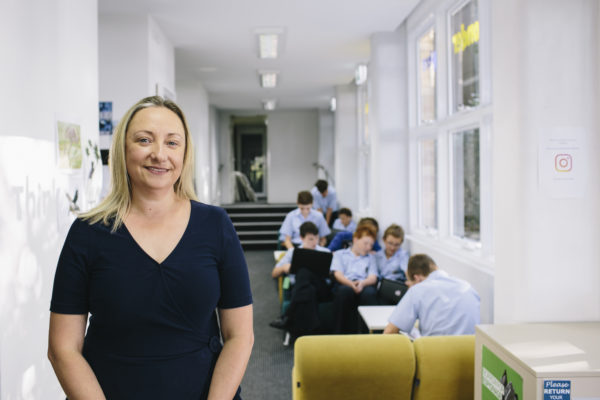
(Acting) Deputy Principal, Teaching & Learning, Ms Lynsey Porter
From Director of Curriculum, Ms Lynsey Porter
Home Learning serves many purposes. It may be to consolidate or check or extend the learning from the day, or prepare for the learning to come in subsequent days. It could be to do with longer term work such as assignments or preparing for tests and examinations. Ultimately it comes back to what school is all about – learning. And learning not just about learning content, but learning and developing skills.
At times students feel that the work they are doing at school is not relevant to their lives, however sometimes we need to look beyond the content to the purpose of the learning exercise. At times the content will be a vehicle to teach particular skills. Much of what we learn in Mathematics develops the problem solving circuits in our brain. When you are analysing Shakespeare you are learning not just about Shakespeare, but to think critically and expand your point of view and broaden your experience of the world through examination of different lives, emotions and experiences. The message is that everything you learn at school has purpose and value, even if you can’t always quite see it at the time.
There is much debate in the media as to the value of homework. In primary school it has been shown that only a small amount of students actually benefit from doing homework in terms of academic achievement. The exception to this is reading at home – every student benefits from this. However, other benefits can’t be discounted: developing independent working skills, establishing study routines necessary for learning in later years, helping students master things they are struggling with and allowing parental involvement.
In secondary school, homework has been proven to be an essential component of academic success in the senior years. The reality of Year 11 and 12 is that a large component of independent learning needs to be undertaken at home. One of the biggest problems for students transitioning to the senior years is that they have not learnt to work effectively and efficiently in the home environment. This is why developing good habits and learning to do at least a solid hour a day of home study is essential in Years 7-10. It is also about developing the qualities of discipline and perseverance, both essential for senior studies. Students will not like every subject equally, so students need to learn how to make themselves do the work even for their least favourite subjects.

What can you do this year to manage your homework effectively? Try these top tips:
Get Organised Straight Away: As soon as you get home unpack your bag before you have a break and something to eat. Lay out all the work first. It is easier to get started if you have everything ready to go.
Prioritise and Plan: Before you start work, write a list of what needs to be done and decide in what order you will do it. Focus on what is most important, not just what subject you like best! Also write down how long you think each task will take to do.
Develop Thinking Pathways: Keep in your mind that it is all about learning. Try to look beyond the actual content to what type of skill this homework might be developing in you – analysing, critical thinking, writing skills, or problem-solving skills for example.
Chunk Time into Focused Blocks: Do your work in 20-30 minute blocks with no distractions during that time. So switch off the TV, turn off your phone for that 20-30 minutes. When you just focus on the work that needs to be done, you’ll be amazed at how much work you complete. Of course if you are on a roll, you can keep going past the 30 minutes.
Alternate and Chip Away: If there is a task you really don’t want to do then alternate this with a task you enjoy doing. For example, 15 minutes on the homework you like, 5 minutes on the homework you don’t like. When you chip away at it you will be surprised how quickly you get through the work.
Learn more this year about how to improve your results and be more efficient and effective with your schoolwork by working through the units in Study Skills Handbook
Our school’s access details are
Username: forwaverleycollegeonly
Password: 94 results
Downloads
| Download |



